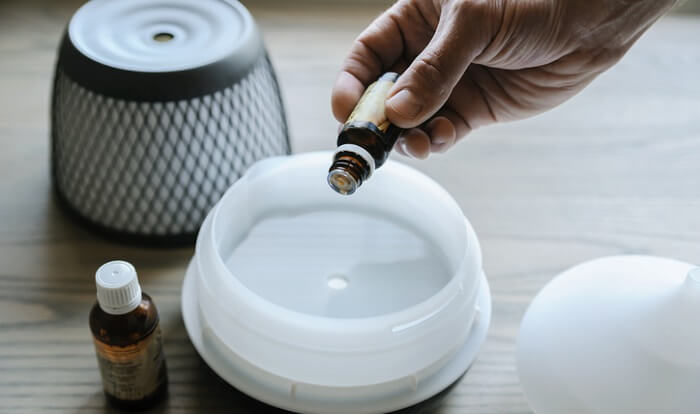Every day, our bodies are exposed to countless toxins and stressors that can really put a strain on our immune system. Some of it we can control and some of it we can’t, but regardless, it doesn’t change the fact that our immune systems take numerous hits every single day. In a healthy individual, this isn’t normally an issue. However, if the immune system is compromised, this can lead to illness or possibly even more serious health issues.
Factors that affect the immune system
There are many factors that can affect the immune system. Some of the most common ones include:
- Toxin Exposure
- Diet
- Exercise
- Stress
- Sleep
- Exposure to illness
The fact is that no matter how hard we try to avoid it, our immune systems will eventually get compromised at some point. Stressful situations at work, inadequate sleep, or some other factor (or factors!) will inevitably have an impact on the immune system and our health.
Boosting immunity
There are many things that can be done to boost immunity. Getting quality sleep, eating a healthy diet, exercising regularly, and reducing our toxin load are all things that have a big impact on our immunity. However, another way we can support the immune system is to add essential oils to our daily regimen. In fact, there are numerous essential oils that can be used for immunity.
Essential oils for immunity
While all essential oils have antimicrobial properties, they differ in which properties they contain. Below, I’ve included some of the most common essential oils for immunity, plus a few that contain powerful antimicrobial compounds that can be especially useful in fighting off a wide range of bacteria, viruses, and fungi.
1. Lavender

It’s usually a pretty safe bet that lavender will be beneficial for most situations. It’s an incredibly versatile oil that is useful for just about anything. Specifically for immunity, lavender is beneficial since it can not only help induce a good night’s rest—encouraging your body to get the restorative sleep it needs—but is also commonly used for reducing stress as well. As I mentioned above, stress and sleep are both contributing factors for lowered immunity. However, another way lavender helps with immunity is with its antioxidant properties, protecting the cells from free radicals.1
2. Lemon
Lemon essential oil has powerful antibacterial properties, which is why it’s a common ingredient in homemade cleaners. It’s also a powerful antioxidant, which can be beneficial to the immune system. Additionally, it’s an energizing oil, helping to boost your mood and make you feel refreshed and energized as well. Interestingly, two separate scientific studies conducted using lemon essential oil found evidence that it may be beneficial in protecting the health of the liver.2 3 This is significant considering the fact that the liver plays such a large role in the immune system.4 Please note that lemon is a phototoxic essential oil, so it should only be used on the skin in very low dilutions and never directly before sun exposure.
3. Eucalyptus
With its powerful antiviral and antibacterial properties, eucalyptus is another essential oil that’s great for immunity. Although commonly used for the treatment of respiratory illnesses, it’s actually beneficial for much more than that. It can help fight off a number of illnesses such as flu, chickenpox, measles, and more. Additionally, it’s stimulating to the immune system, as well as to the mind.5 Please note that eucalyptus essential oil should be used with caution and never on or near the face of infants or young children.
4. Peppermint

Peppermint essential oil is an incredibly versatile and effective oil. It has antibacterial and antifungal properties and is beneficial for numerous issues ranging from ringworm to headaches to digestive troubles.6 However, it’s also effective when used to protect your body against illness such as colds, fevers, and the flu, and can even help perk you up when you’re feeling sluggish. Please note that peppermint essential oil should be used with caution and never on or near the faces of infants or young children.
5. Tea Tree
Tea tree is a must-have essential oil for any home. It contains powerful therapeutic properties that are antibacterial, antiviral, and antifungal. This makes it incredibly useful in fighting germs and a multitude of illnesses. And, to top it off, it’s one of the gentler essential oils, making it beneficial for just about any home. Tea tree is also an immunostimulant and has long been valued for its superior antimicrobial properties.7
6. Oregano
Oregano is another essential oil that is incredibly beneficial for boosting immunity. Like tea tree, it is antibacterial, antiviral, and antifungal, making it fantastic for killing germs and preventing illness. It’s considered especially useful in fighting infection and inflammation. It’s also a stimulating essential oil.8 However, oregano is a very potent essential oil. In fact, it is commonly referred to as a “hot” oil, meaning it can induce a warming sensation and can easily be irritating. For this reason, it should be used with extreme caution. Oregano should never be used on young children or pregnant or breastfeeding mothers. It should also be used at very low dilutions and never undiluted or used on irritated skin.9 By far, the safest way to use oregano essential oil is diffusion.
7. Niaouli

Niaouli essential oil is considered especially beneficial for boosting immunity. It is antibacterial, antiviral, and antifungal, and is therapeutic for a number of ailments. Not only is it beneficial when used for respiratory issues, but it’s also useful in combating colds, fever, and the flu.10 Niaouli is also a stimulating essential oil and is even useful in getting rid of parasites and fighting off infections and germs as well.
8. Palmarosa
Palmarosa also makes the cut in being one of the best essential oils for immunity. Commonly, you can find palmarosa used in skin-care products due to its ability to support skin health in a variety of ways. However, with its wide range of antibacterial, antiviral, and antifungal properties, it can be used to fight off a number of illnesses as well. Comprised mostly of geraniol, palmarosa is an immune system stimulant.11 Furthermore, because it is one of the gentler essential oils, this oil can be used around most individuals.
9. Rosemary
As another versatile oil, rosemary is another essential oil that is beneficial for immunity. Having powerful antimicrobial properties, it’s often used when fighting off illness, especially of the respiratory variety. Because of its high percentage of 1, 8-cineole, rosemary is considered stimulating for the glands in the respiratory system.12 Additionally, it’s an immunostimulant, so it can not only help protect the body by fighting off germs, but also helps boost the immune system.13 Please note that rosemary should be used with caution and never on or near the face of infants or young children.
10. Clove Bud
Clove is a common ingredient in many essential oil immunity blends, and for good reason. It is antibacterial, antiviral, and antifungal, and is also considered to be a powerful antiseptic.14 Not only is it beneficial for digestive issues, but it’s frequently used for mouth health and general infections, as well as for combating colds and the flu.15 Because of its strong antimicrobial properties, clove bud is a great option to consider when using essential oils for immunity.
Essential oil blends for immunity

While any of the above essential oils can be used in an immune-supporting blend, I’ve created two simple recipes that would be especially beneficial when diffused throughout the home to help boost immunity and purify the air. However, feel free to switch out any oils to suit your needs and adjust amounts accordingly based on your diffuser instructions.
Immunity Blend #1
- Lavender – 3 drops
- Eucalyptus – 2 drops
- Rosemary – 2 drops
- Niaouli – 2 drops
- Oregano – 1 drop
Immunity Blend #2
- Palmarosa – 3 drops
- Lemon – 2 drops
- Tea Tree Oil – 2 drops
- Peppermint – 2 drops
- Clove Bud – 1 drop
Use essential oils for immunity
We know that there are many factors that can negatively impact the immune system. Poor diet, lack of quality sleep and exercise, toxin exposure, and stress can all have a negative effect on our immunity and health in general. That’s why it’s important to make sure we’re doing all we can to support immunity. Essential oils can be especially beneficial for the immune system due to their antibacterial, antiviral, and antifungal properties. Not only can they aid in fighting off a wide range of pathogens, but they can also stimulate the immune system as well. So next time your immune system takes a hit, you might want to consider adding essential oils to your immune-boosting routine.

 About Nicole Stine
About Nicole Stine
Nicole Stine is a certified herbalist who has numerous aromatherapy and natural health certifications. She is passionate about using herbs and essential oils safely and thoroughly enjoys researching and writing about natural health, as well as creating her own formulations.
Sources:
1. Hancianu, M., O. Cioanca, M. Mihasan, & L. Hritcu. “Neuroprotective Effects of Inhaled Lavender Oil on Scopolamine-induced Dementia via Anti-oxidative Activities in Rats.” Phytomedicine 20, no. 5 (2013): 446-52.
2. Misharina, T. A., L. D. Fatkullina, E. S. Alinkina, et al. “Effects of Low Doses of Essential Oil on the Antioxidant State of the Erythrocytes, Liver, and the Brains of Mice.” Прикладная биохимия и микробиология 50, no. 1 (2014): 101-07.
3. Bouzenna, H., S. Dhibi, Noura Samout, et al. “The Protective Effect of Citrus Limon Essential Oil on Hepatotoxicity and Nephrotoxicity Induced by Aspirin in Rats.” Biomedicine & Pharmacotherapy 83 (2016): 1327-334.
4. Jakab, L. “The Liver and the Immune System.” Orvosi Hetilop 156, no. 30 (July 26, 2015): 1203-213.
5. Sadlon, A. E., & D. W. Lamson. “Immune-modifying and Antimicrobial Effects of Eucalyptus Oil and Simple Inhalation Devices.” Alternative Medicine Review 15, no. 1 (April 2010): 33-47.
6. Worwood, Valerie Ann. The Complete Book of Essential Oils and Aromatherapy: Over 800 Natural, Nontoxic, and Fragrant Recipes to Create Health, Beauty, and Safe Home and Work Environments (Novato, CA: New World Library, 2016).
7. Worwood, Valerie Ann. The Complete Book of Essential Oils and Aromatherapy: Over 800 Natural, Nontoxic, and Fragrant Recipes to Create Health, Beauty, and Safe Home and Work Environments (Novato, CA: New World Library, 2016).
8. Lawless, Julia. The Illustrated Encyclopedia of Essential Oils: The Complete Guide to the Use of Oils in Aromatherapy and Herbalism (Shaftesbury, England: Element Books Limited, 1999).
9. Tisserand, Robert, Rodney Young, & Elisabeth M. Williamson. Essential Oil Safety: A Guide for Health Care Professionals (Edinburgh: Churchill Livingstone/Elsevier, 2014).
10. Lawless, Julia. The Illustrated Encyclopedia of Essential Oils: The Complete Guide to the Use of Oils in Aromatherapy and Herbalism (Shaftesbury, England: Element Books Limited, 1999).
11. Clarke, Sue. Essential Chemistry for Aromatherapy (Elsevier Health Sciences, 2009).
12. Clarke, Sue. Essential Chemistry for Aromatherapy (Elsevier Health Sciences, 2009).
13. Worwood, Valerie Ann. The Complete Book of Essential Oils and Aromatherapy: Over 800 Natural, Nontoxic, and Fragrant Recipes to Create Health, Beauty, and Safe Home and Work Environments. (Novato, CA: New World Library, 2016).
14. Tisserand, Robert. The Art of Aromatherapy (Saffron Walden: C.W. Daniel, 2001).
15. Lawless, Julia. The Illustrated Encyclopedia of Essential Oils: The Complete Guide to the Use of Oils in Aromatherapy and Herbalism (Shaftesbury, England: Element Books Limited, 1999).